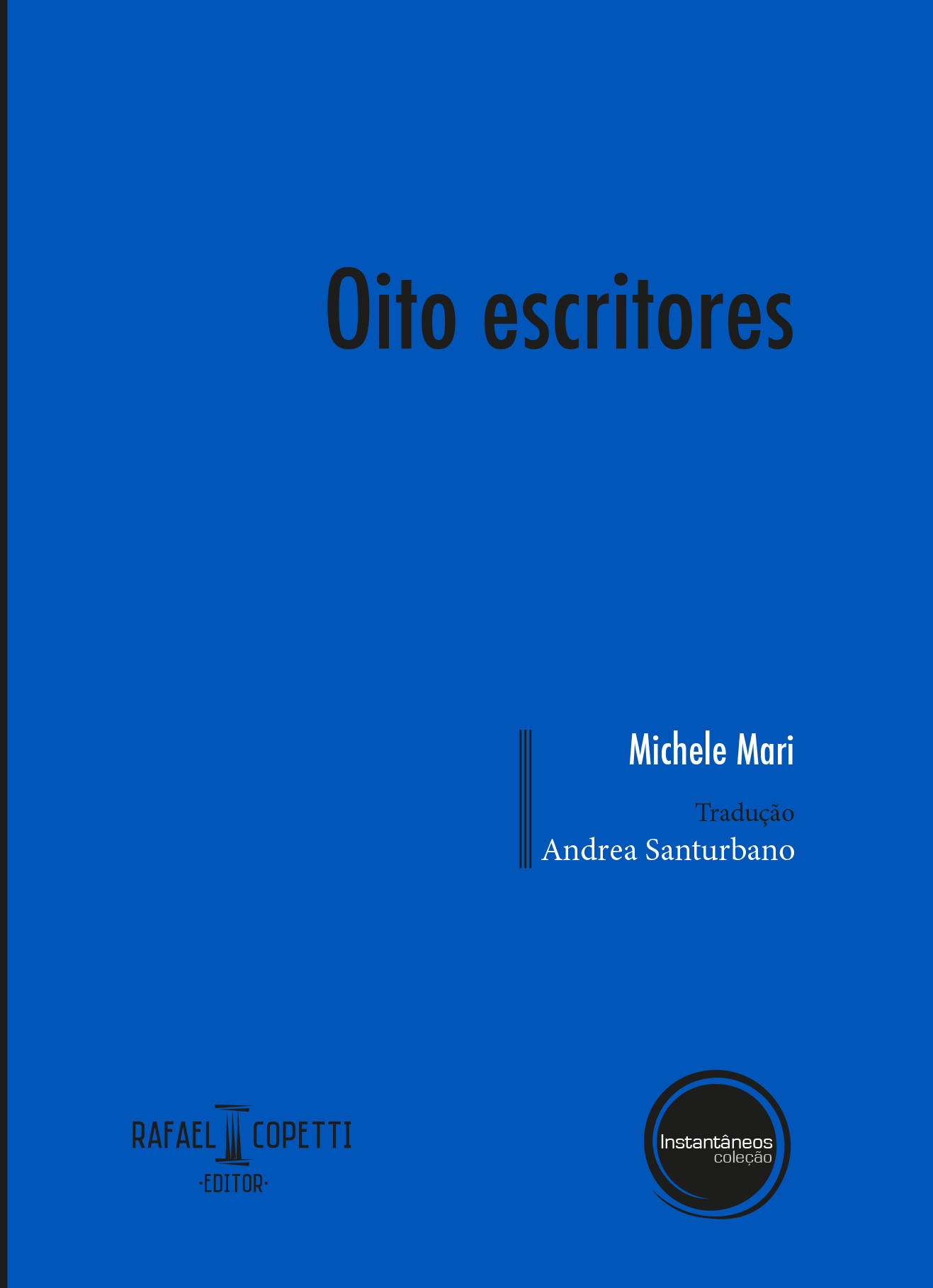
Title: Oito escritores
Writer: Michele Mari
Translator: Andrea Santurbano
Dados sobre a tradução
- Classification: Contos
- Publication year: 2019
- Publisher: Rafael Copetti Editor, Florianópolis, SC
- Language: Português
- Medium: Impresso
- Edition: 1
- ISBN: 9788567569505
- Collection: Instantâneos
- Number of pages: 41
- Dimension: 11x15 cm
Dados sobre o original traduzido
- Tradução parcial da obra
- Título do original: Tu, sanguinosa infanzia
- Language: Italiano
Reference
MARI, Michele. Oito escritores.Translation from Andrea Santurbano. 1. ed. Florianópolis, SC: Rafael Copetti Editor, 2019.
Comments
×

